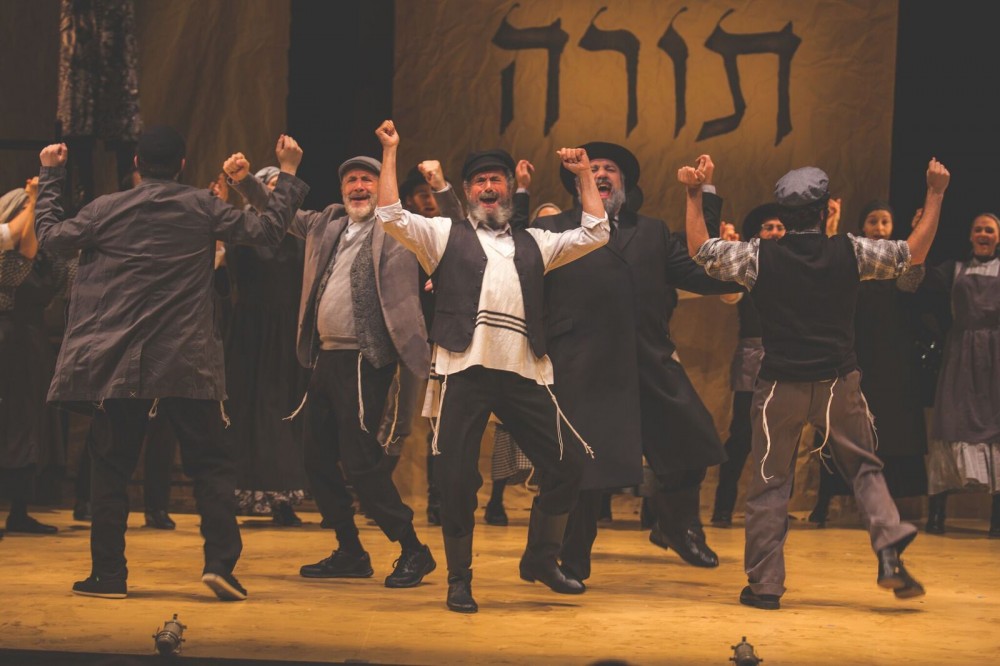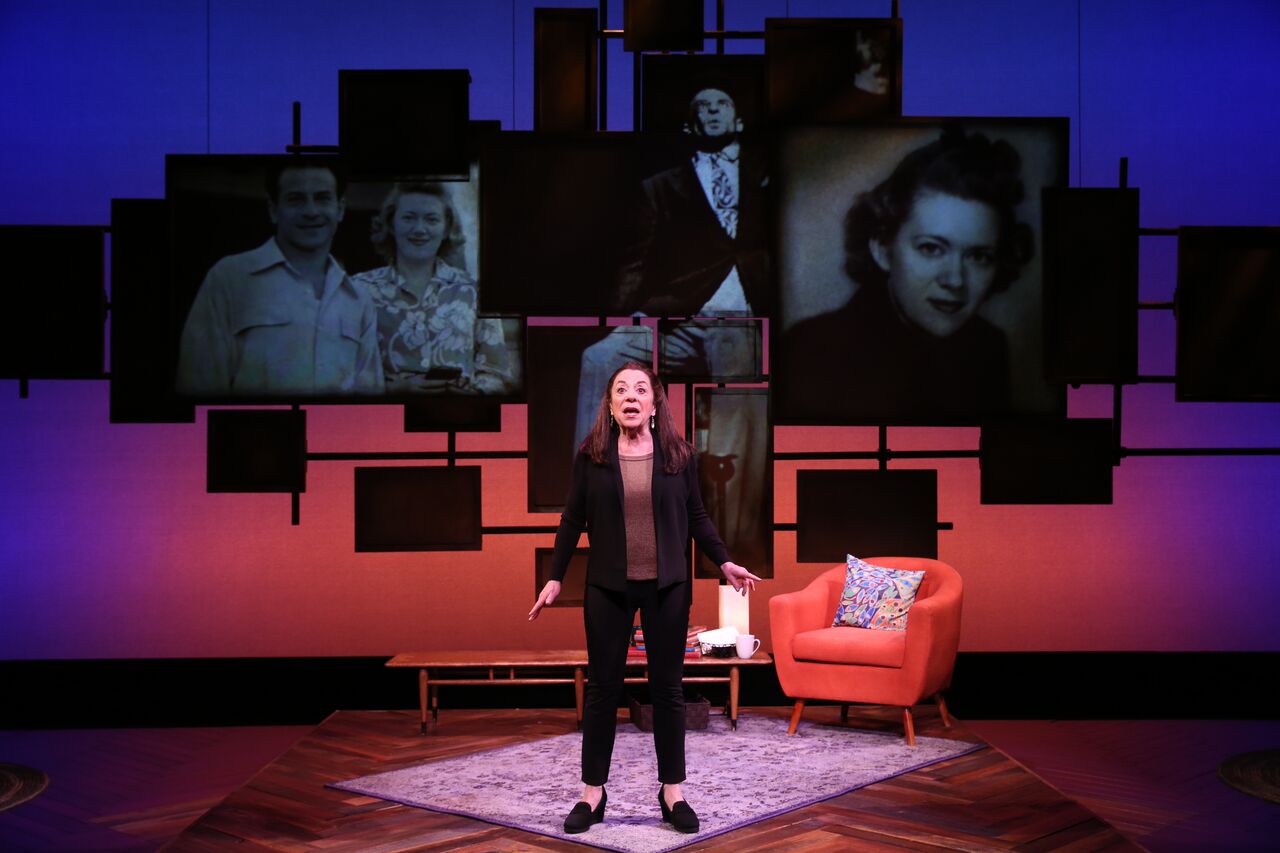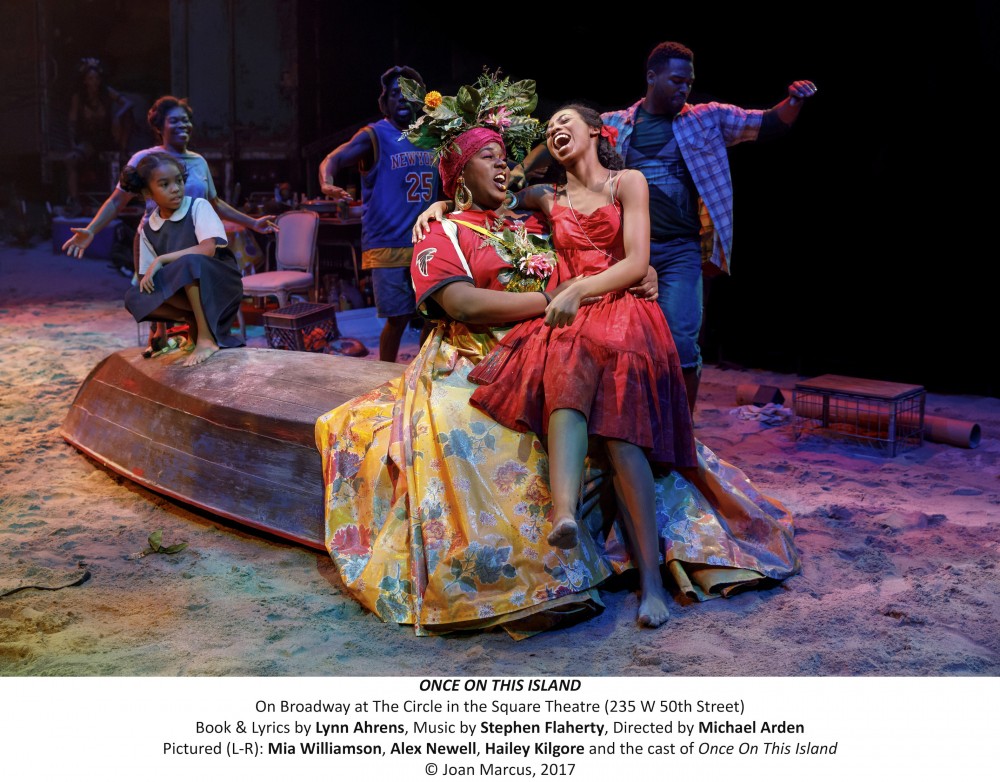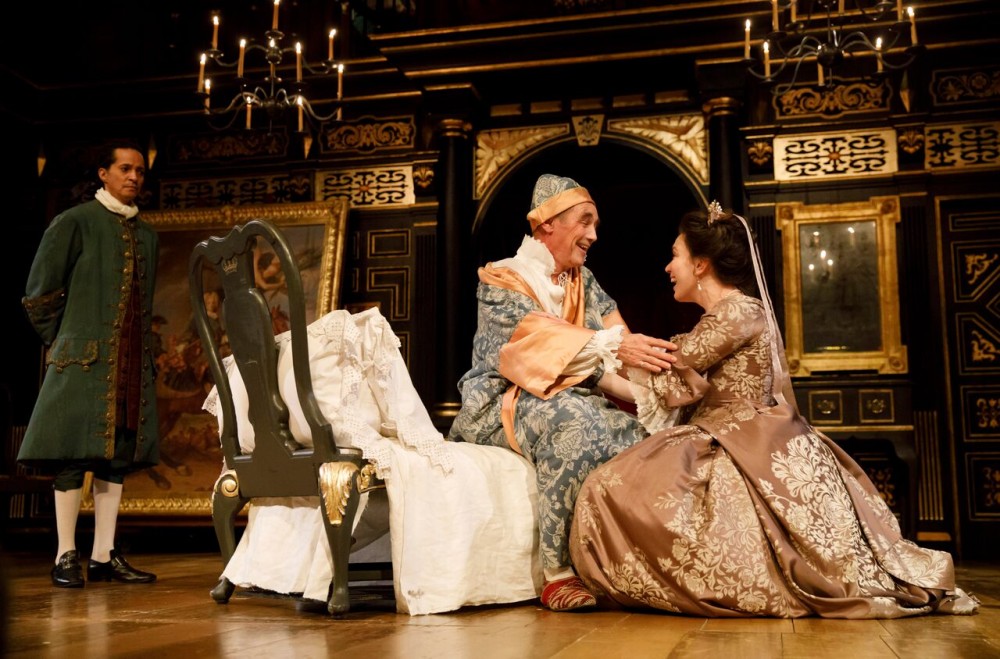By Hazen Cuyler
Adapted for the stage by Jean-Claude Van Itallie and based on the novel by Mikhail Bulgakov, the first time they’ve staged it they enjoyed a totally sold out run for good reason. And now The Russian Arts Theater and Studio has done it again. Extended until January 27 and playing at Pushkin Hall, The Master and Margarita or The Devil Comes to Moscow, directed by Aleksey Burago, is a captivating event you should not miss.
Woland has arrived in Moscow. He’s dapper and charming and he’s also The Devil. He and his minions meet a famed Russian editor who shortly loses his head. They meet a famed Russian poet, Ivan Homeless, who’s quickly institutionalized. And in this institution Homeless meets another writer, The Master. The Master and Margarita were star-crossed lovers until The Master’s manuscript received scathing criticism, driving him to turn his back on the world and his love. To end her painful longing, the devastated Margarita makes a deal with The Devil. And we follow her trip through Hell.
Mr. Burago’s work can be experienced as a sequence of contrasting sensations. One cold, tormented atmosphere may pull you directly into a warm, playful and totally new atmosphere. Like a high brow acid trip, this arresting pattern continues. One after another after another.
Here’s an example:
A rickety sidecar, made from every cast member crammed between benches and flashlights, chugs down a pitch-black cobble stone street. It reaches the audience and bursts apart. Without transition or warning, we’re in a bright park near a pond listening in on the theological ramblings of two writers.
And another example:
The Master tells his love story to Homeless inside a cold and lonely prison cell. He turns on a warm lamp across the dark playing area and suddenly we experience two realities simultaneously; Homeless’ claustrophobic cage in contrast with The Master’s warm memory of a wide-open apartment full of love and opportunity.
Roman Freud is Woland. He’s The Devil hosting a magic show. It’s all fun and games and we laugh and laugh. And then he orders his cat to rip off the Emcee’s head. The audience goes silent. Nothing changes drastically in Woland’s behavior. However, through Mr. Freud’s characterization, we witness The Devil’s divine influence and experience shame and regret in ever having trusted him.
Woland’s minions are a giggling gang of demonic misfits. Luisa Menzen is a magnetic Hella; a playful and sexy maid without remorse. Ariel Polanco is transformative as Koroviev. He’s a wirey, snake-like gentleman atop six inch platforms. Michael Dona’s Azazello is totally dynamic as the easily intimidated, tough-guy mafioso. And Charles Anderson’s insatiable performance as Behemouth is bursting with joyful maniacism. They’re all laughing and sexy and deadly. A grab bag of childlike impulses and adult fantasies taken to homicidal heights and gone awry.
Tom Schubert plays both The Master and Yeshua. Facing his historic trial, Yeshua’s beaten body collapses to the ground. Schubert’s warm smile grows wide and his eyes shine with conviction, defiant in the face of his cold fate. His body trembles as his bright spirit fights to inspire a confounded Pontious Pilate.
In the beginning, Di Zhu as Margarita is a powerful and grounded woman. Infatuated by The Master, her stoicism melts away. After making a deal with the devil she becomes a witch and her eyes go wild. An upward mania races as she sails across the Moscow sky. Ms. Zhu is left alone in the center of an empty stage; a speech from an actor standing still, nearly naked, holding an antique broomstick. And yet, we see sexy, untethered, animal passion. She smashes her head into an imagined window pane. Her head bounces back with shock and surprise and her eyes shift to raving pleasure. The seductive glowing embers of hatred and desire. We witness all this in Ms. Zhu’s eyes. There’s a reason the audience bursts into applause as she exits the stage.
The Master and Margarita was posthumously published after Bulgakov lived a life under fierce censorship. The play’s very existence is a war cry of free expression. Bulgakov was an unknown, relatively. Burago is an unknown, relatively. But if you are searching for the great artists of our generation; the unique voices shattering the boundaries of our conventional and repetitive lives; some reside here at The Russian Arts Theater and Studio. Here, we are witnessing the now-unknown greats of history. Performing boldly on a darkened stage. Born from the written echoes of our great human history. Not yet known. And soon to be legend.
Photos: Katie White
Pushkin Hall 165 w.86th Street, NY, New York www.russiantheater.org
Running Time: 2.5 Hours. 10 Minute Intermission Thru Jan. 27

























